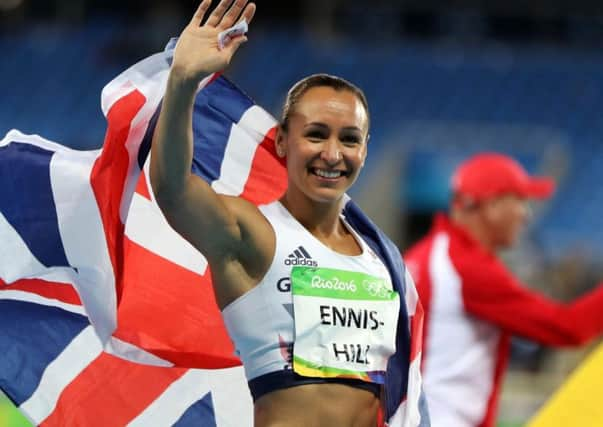Michael Dugher: We need a sports policy fit for purpose


But, joking apart, it strikes me that all over the country this summer, people – especially our youngsters – will have been inspired by Britain’s Olympic success in Rio. Who would have thought we could have topped our achievements from four years ago in London?
Team GB finished second in the final medals table – ahead of China for the first time – and it would be uncharacteristically modest if we didn’t also acknowledge our contribution here in Yorkshire. Competitors from God’s Own County won 14 medals including five golds. Athletes like Ed Clancy, Jessica Ennis-Hill, Jack Laugher and Nicola Adams not only did us proud, but they have the power to inspire the next generation of Olympic heroes. And just as importantly their achievements can encourage more people to get active and involved in sport.
Advertisement
Hide AdAdvertisement
Hide AdYet despite the brilliant results of our top athletes at the London Olympics four years ago, the depressing reality is that participation in sport here in Britain has actually fallen in recent years. The Government’s own figures show a significant drop in sport participation across the board. Fewer primary and secondary school children are taking part in sports than there were in 2010, both in and out of school. Among five to 15-year-olds, less than one in five (19.2 per cent) play competitive sport outside school.
Participation has risen in just three of the 26 Olympic sports since the 2012 London Olympics, and has dropped in 15 others. Last year, 800,000 fewer people took part in swimming than did in the year of the London Games – the steepest fall in any of the Olympic sports.
Over 750,000 more adults were completely inactive last year than there were in 2012/13. Among the poorest social group, 365,100 fewer people participated in sport – a fall of almost three per cent. In Yorkshire and the Humber alone, the number of people taking part in sports and exercise at least once a week has fallen by 67,100 since the 2012 Olympics.
Many of these damning statistics are the result of short-sighted Government decisions, including scrapping Labour’s target of ensuring at least two hours of participation in sports for every child each week. The Government also cut £162m in annual funding for the School Sports Partnerships, a successful programme set up under Labour which linked specialist sports colleges with primary, special and secondary schools in the area.
Advertisement
Hide AdAdvertisement
Hide AdSince the London Games, there have been significant cuts to grassroots sports. Continued massive cuts to local authorities make it near impossible for many of them to create and maintain the infrastructure needed.
Research has shown that people who participate in sport have a 30 per cent lower risk of developing dementia. Sport can also be a factor in reducing youth crime and reoffending. On top of this, participation in sport can help improve social cohesion and increase educational attainment.
The previous Labour government recognised the vital health and social benefits of a proper sport strategy and made enormous progress. In 2002 estimates indicated only 25 per cent of school children took part in at least two hours of PE and sport a week. By 2010, after years of effective Labour policy on sports, over 90 per cent of school children were doing two or more hours of sport – and 55 per cent was doing three hours a week or more.
Despite the positive legacy left by Labour, it took the Conservatives over five years to come up with an actual sports strategy – finally publishing one in December last year. As the Shadow Secretary of State for Culture, Media and Sport at the time, I welcomed this. I thought it was good news that they had ‘borrowed’ many of the ideas we had been putting forward in Parliament.
Advertisement
Hide AdAdvertisement
Hide AdThis Government should learn from their mistakes. In 2012, they had a unique opportunity to capitalise on the success of the London Olympics to inspire people across generations. It proved to be an opportunity squandered.
With the tremendous success of Great Britain’s sporting heroes at the Rio Olympics, this Government now has a chance to do better. It remains to be seen if they will act to turn around the decline in sports participation.
Michael Dugher is Labour MP for Barnsley East and a former member of the shadow cabinet.